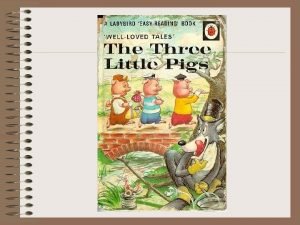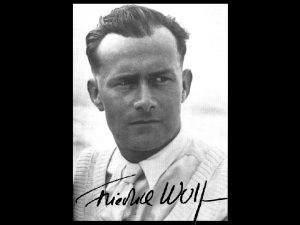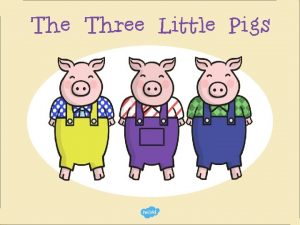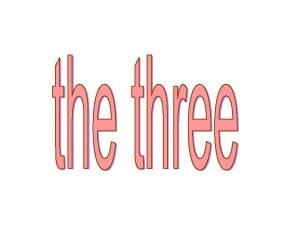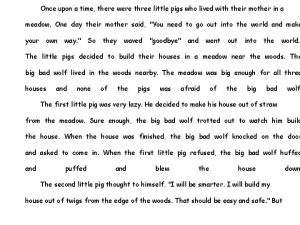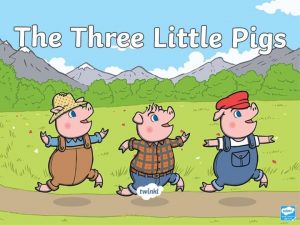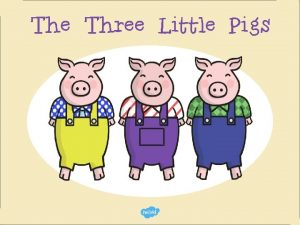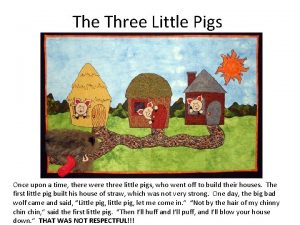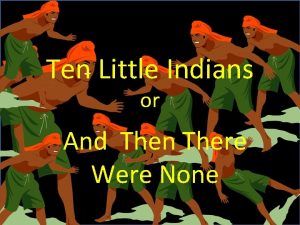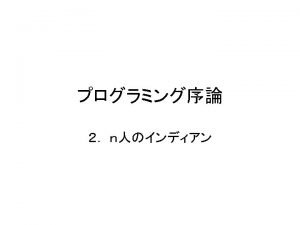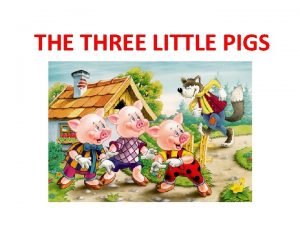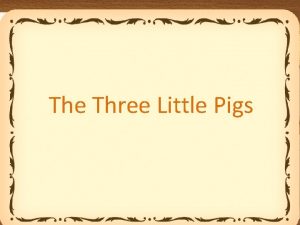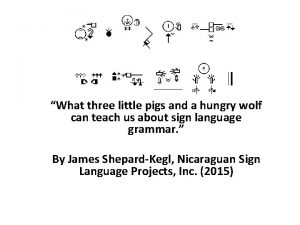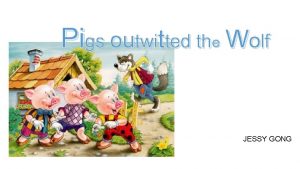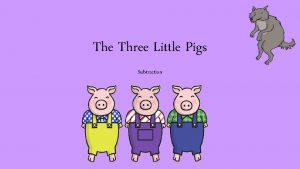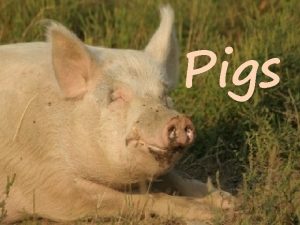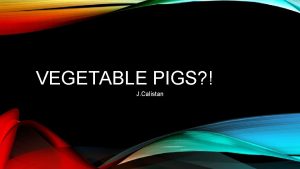Five Little Pigs and the Wolf of Time













- Slides: 13

Five Little Pigs (and the Wolf of Time)

What is Time Perspective? Our time perspective is the kind of glasses we habitually put on when we look at the world around. These glasses represent the way we deal with time and effect many actions we take. These glasses have three main types of lenses: past, present and future. Some of us are here-and-now people. Some of us are stuck in the past. Some of us, when choosing between work and play, usually go for work whilst others – for play.


Future time perspective Ø Ø Ø I am able to resist temptations when I know that there is work to be done When I want to achieve something, I set goals and consider specific means for reaching those goals Working for future rewards Delaying gratification More successful

Present hedonistic time perspective Ø Ø It is important to put excitement in my life. Little concern for the consequences of actions Behavior is determined by physical needs, emotions, strong situational stimuli and social input At risk of giving in to temptations, leading to addictions, accidents and injuries, and academic and career failure.

Present fatalistic time perspective Since whatever will be, it doesn’t really matter what I do Ø My life path is controlled by forces I cannot influence Ø Hopelessness Ø A belief that outside forces control one’s life, for e. g. spiritual or governmental forces. Ø

Past positive time perspective Ø Ø Ø It gives me pleasure to think about my past I get nostalgic about my childhood A warm, pleasurable, often sentimental and nostalgic view of one’s past Maintaining relationships with family and friends Traditions and history Continuity of self over time

Past negative time perspective I often think of what I should have done differently in my life Ø Painful past experiences keep being replayed in my mind. Ø Focusing on personal experiences that were negative Ø Psychotherapy clients Ø

Impact of TP Ø Ø Found to be related to many attitudes, values, and status variables, such as, educational achievement, health, sleep and dreaming patterns, romantic partner choices and more (Zimbardo & Boyd, 1999) Indicative of choice of food, health choices, parental marital state, desire to spend time with friends and perceived time pressure (Zimbardo & Boyd, 1999) Predictive for a wide range of behaviors, including risky driving, and other forms of risk taking, delinquency and sexual behaviors (Zimbardo, Keough, and Boyd, 1997) Also substance abuse of beer, alcohol and drugs (Keough, Zimbardo, and Boyd, 1999).

Impact of TP II TP even predicts the extent to which unemployed people living in shelters use their time constructively to seek jobs (future-oriented), or waste time watching TV and engaging in other non instrumental activities and avoidant coping strategies (present-oriented) (Epel, Bandura and Zimbardo, 1999) Ø Significantly shorter time horizons in pathological versus social gamblers (Hodgins and Engel, 2002) Ø

TP & Cultures Ø Ø Protestant nations tend to be more future-oriented than Catholic nations, and that is correlated with Gross National Product indices. Within countries, those living in southern sections tend to be more present-oriented than those in northern regions. Cultures with more individualistic focus tend to more future-oriented than do those emphasizing collectivism. Western ways of life have become predominantly goal-focused and future-oriented.

Who is the happiest?

 Once upon a time there was three little pigs
Once upon a time there was three little pigs What does the wolf symbolize in the three little pigs
What does the wolf symbolize in the three little pigs Peter and the wolf grandpa
Peter and the wolf grandpa Brush wolf vs timber wolf
Brush wolf vs timber wolf Konrad wolf judith catherine wolf
Konrad wolf judith catherine wolf Once upon a time three little pigs
Once upon a time three little pigs Once upon a time there were three little pigs
Once upon a time there were three little pigs Once upon a time there lived three little pigs
Once upon a time there lived three little pigs Once upon a time there was three little pigs
Once upon a time there was three little pigs Alpha pig helps build the straw house
Alpha pig helps build the straw house Once upon a time there were three little pigs
Once upon a time there were three little pigs Ten little indian boys poem
Ten little indian boys poem 1 little 2 little 3 little indian
1 little 2 little 3 little indian Red riding hood and big bad wolf
Red riding hood and big bad wolf
